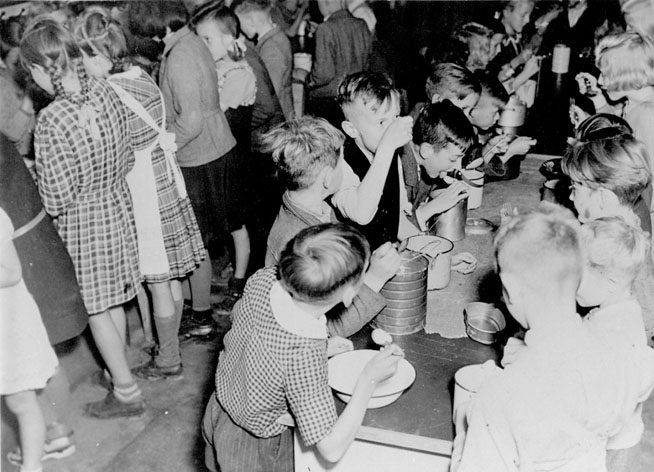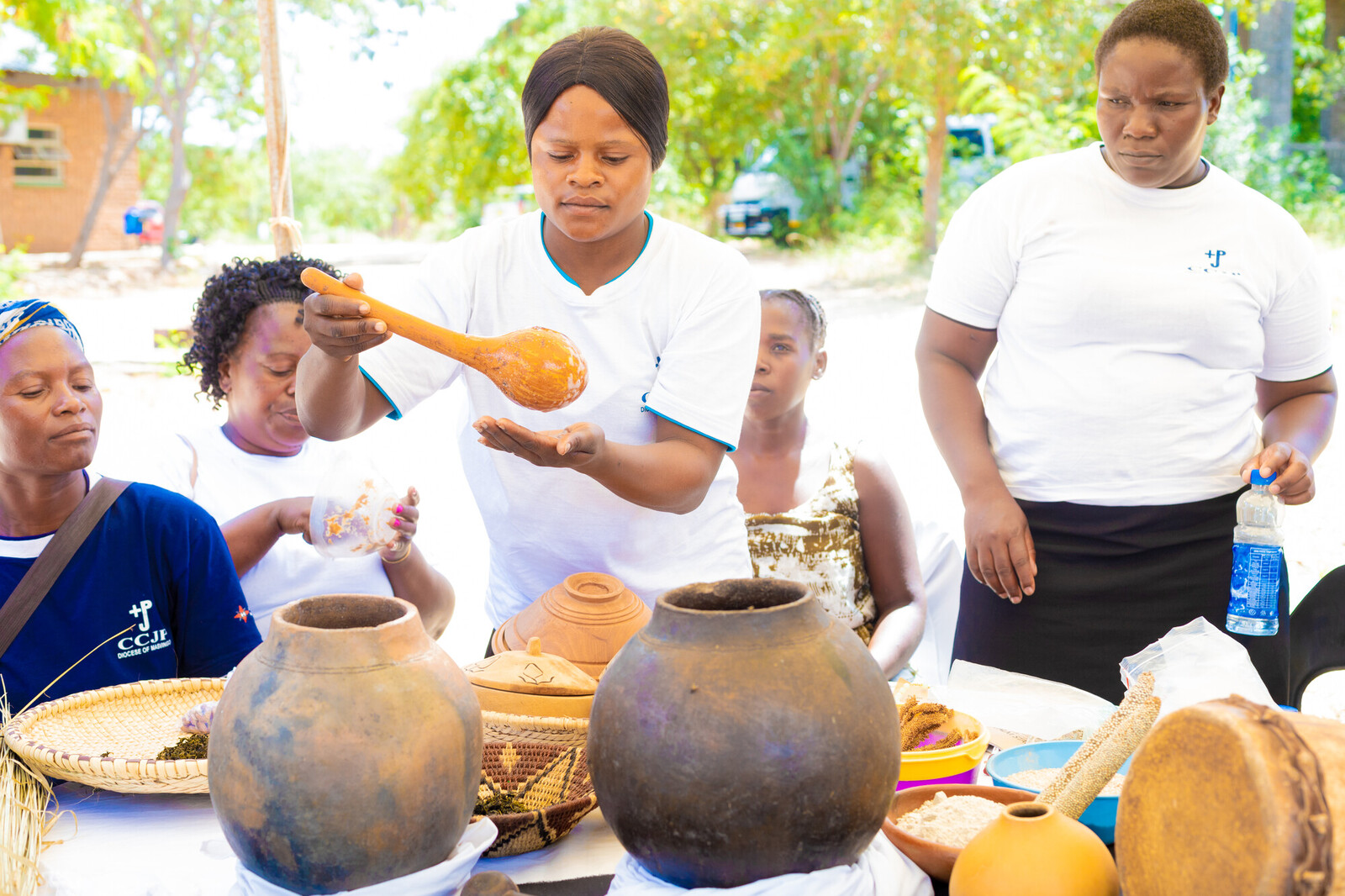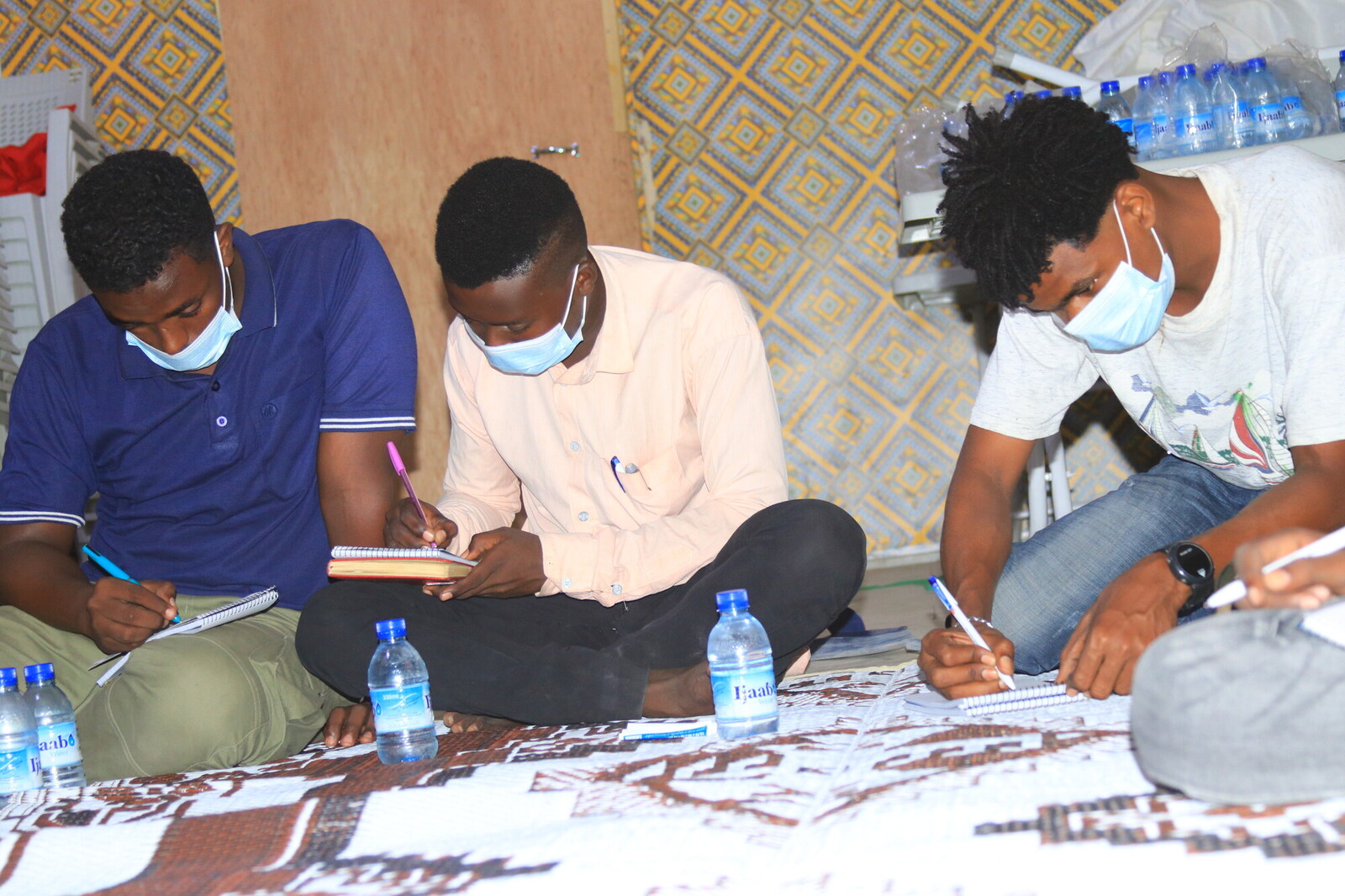
During World War II and Reconstruction, AFSC and Quakers fed countless children in Germany and other European countries. Photo: AFSC/Archives
In the aftermath of World War I, millions of children in Germany, Austria, and Poland received much-needed food assistance from AFSC and Quakers in Europe. Friends were willing to do what others would not—provide humanitarian aid to people whom many still regarded as “enemies.”
That life-saving work would continue during World War II and Reconstruction. AFSC staff help thousands of children and families escape Nazi Europe. They also set up milk stations and provided food to countless people through schools, orphanages, prisons, senior homes, and more. For many children and others in need, it was sometimes their only meal of the day.
One of the beneficiaries of Quaker aid in Germany was Jutta Fleisch, a 14-year-old who lived in the industrial town of Essen that had been ravaged by the war. By 1946, Jutta’s home and almost everything around it had been bombed and nearly reduced to rubble. Families had no food, no running water, and few belongings.
“Without Quaker help, many people would not have survived,” says Jutta, who is now 91.
For two years after the war, AFSC and German Quakers distributed food to children at Jutta’s school and in many other towns and cities throughout Germany as the country worked to rebuild.
“It was very hard to have nothing to eat,” Jutta recalls. “My mother would sometimes travel to rural areas to ask farmers for just a few potatoes. Going to school was the one time of day when children had an essential meal provided by Quakers help. If we didn’t have school, we could bring these food boxes home. There was a lot of gratitude for the Quakers.”
Stories like these live on in the memories of most Germans in Jutta’s generation. As time went on, many have wanted to give back to those who came to their aid in the most difficult of times.
In 1996, AFSC and the German Quaker organization Quäker-Hilfe founded a charitable trust called the Quäker-Hilfe Stiftung (QHS). Many of its earliest donors were Germans who had been assisted by Quakers during the war and the years that followed. Through QHS, they have supported the work of AFSC and Friends in communities around the globe that have also been impacted by war and other crises.
Over the foundation’s nearly 30 years, the work of QHS evolved from focusing solely on hunger relief to supporting the long-term work of communities seeking to build just, sustainable peace.
In just the past few years, QHS funding has supported AFSC’s work with communities around the globe, including:
- Providing trauma healing for youth from Somalia and South Sudan.
- Delivering life-saving humanitarian assistance for Palestinians in Gaza.
- Funding social services for Ukrainian refugees in Europe.
- Supporting Indigenous communities in Guatemala in struggles for social and environmental justice.
- Convening civil society members in the Middle East and North Africa working to address climate change.
“QHS is a well-managed, stable foundation, and it has a very good reputation because of the work that Quakers do,” says Hans Fleisch, who served as secretary general of the Association of German Foundations. Hans is also Jutta’s son. Three years ago, he began providing pro bono consulting services to QHS, drawn by the foundation’s vital work as well as his mother’s personal connection to Quakers.
The impact that QHS has had now spans the globe, thanks in large part to its donors who remember the kindness that Quakers had shown them.
“The foundation is still supported by Germans who remember the important role that Quakers played after World War II,” says Jason Drucker, AFSC associate general secretary for advancement and board member of QHS. “Today, QHS is still providing critical philanthropic support for peace and justice initiatives in some of the most challenging places around the world. We also are coordinating closely with Quaker meetings in Europe in accompanying communities facing violence and oppression.”
If you or your family was assisted by AFSC in Europe during or after World War II, we would love to hear and archive your story. Please contact Don Davis, AFSC’s archivist, at archives@afsc.org.




